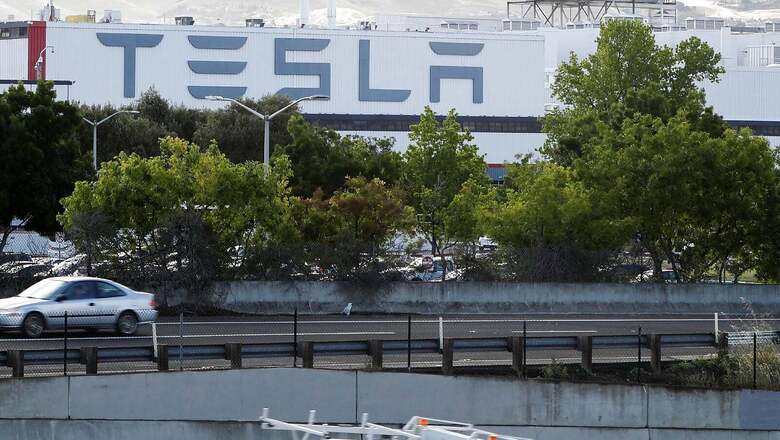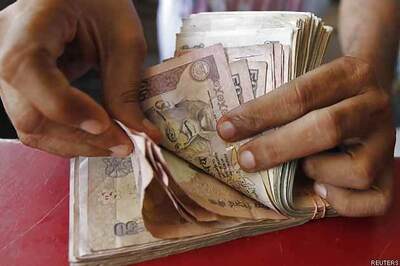
views
Last year, the American electric car maker Tesla announced that it will adopt lithium iron phosphate (LFP) batteries in its standard-range vehicles. In its third-quarter earnings report, the company clearly stated that “we are shifting to Lithium Iron Phosphate (LFP) battery chemistry globally” and this decision could lead to an industry-wide change.
LFP batteries are popular in China because they utilise an older, less expensive battery chemistry. EV batteries are mostly nickel-based outside of China—either nickel-manganese-cobalt or nickel-cobalt-aluminium.
However, LFP battery cells are appealing since they are not reliant on ultra-rare raw elements like cobalt and nickel.
Tesla’s move may persuade competing automakers who are wary of iron-based batteries that they are a safe and viable option.
However, German automobile giant Volkswagen intends to utilise them in a few models. So if more carmakers adopt the battery, it might become the new worldwide standard in entry-level EVs, especially if charging infrastructure improves to the point where the greater range is no longer an issue.
Old school
The LFP battery chemistry has been around the longest.
LFP has several advantages over lead-acid and other lithium batteries. It has a lifespan of 1,000 to 10,000 cycles. These batteries can withstand high temperatures with little deterioration. They have a long life for applications with embedded systems or that need to run for extended periods of time before needing to be charged.
This particular alternative has a high charge and discharge efficiency, and the charge and discharge efficiency can reach over 90 per cent under discharge conditions, whereas the lead-acid battery is around 80 per cent.
LFP or LiFePO4, batteries are made up of more than just connected cells; they also have a system that ensures the battery stays within safe limits. A battery management system (BMS) safeguards, controls, and monitors the battery under all operating conditions to ensure safety and extend battery life.
While LFP cells are more tolerant than alternatives, they are still susceptible to overvoltage during charging, which reduces performance. The cathode material can also oxidise and lose stability. However, the BMS limits each cell and ensures that the battery maintains a maximum voltage.
As the electrode materials deteriorate, undervoltage becomes a concern. If any cell’s voltage falls below a certain threshold, the BMS can disconnect the battery from the circuit. It will also serve as a backstop in the event of an overcurrent condition and will shut down operation in the event of a short circuit.
But LFP batteries have a lower energy density than lithium cobalt oxide (LiCoO2) batteries and a lower operating voltage, therefore it is unable to charge and discharge at low temperature.
China’s dominance
One of the main reasons why LFP batteries aren’t widely used outside of China is due to the number of significant LFP patents that have allowed China to monopolise the market. These patents are managed by a consortium of universities and research institutions—after the consortium made a deal with Chinese battery producers in which the manufacturers would not be paid a licensing fee if the LFP batteries were only used in Chinese markets.
Chinese battery makers may get an advantage from the possible switch towards LFP. More specifically two companies, BYD and CATL. The second company already manufactures such batteries for Tesla cars—built and sold in China.
However, as these patents will expire in 2022, there are expectations that LFP production will be localised along with vehicle manufacturing.
The most expensive component of an electric vehicle is the battery. But switching to iron-based batteries would have one major benefit, which is cost.
Battery companies have been hiking the price of lithium-ion batteries as commodity prices have risen and margins have been squeezed. As nickel costs quadrupled last year, LG Energy Solution, which supplies Tesla, Porsche and BMW, is said to have boosted battery pricing by a tenth this year.
There is also the possibility of cost savings on recalls. Iron-based batteries are more thermally stable, which means they are less likely to catch fire. General Motors’ recall of 140,000 Chevrolet Bolt vehicles due to battery fires cost $2 billion, with LG Energy Solution’s part of the cost estimated to be $1.2 billion.
Recall expenses, when multiplied by the number of cars sold, may begin to negate the advantages of lithium-ion batteries over older technologies.
However, China also controls more than 80 per cent of the world’s processing and mining of raw materials for electric vehicle batteries. This also indicates that a transition to iron-based batteries would result in a power transfer to the Asian country.
In terms of consumers of EVs, they may benefit from a return to older technology because it allows manufacturers to avoid price hikes. Longer-term, however, there is a substantial risk of supply and pricing disruption.
Because of the highly personalised nature of battery designs, it could be difficult and costly for automakers to switch battery manufacturers on short notice. But Tesla’s decision would surely increase the confidence and interest in LFP’s vast use in the future.
The present worldwide chip shortage has underlined the risks of putting too much reliance on a small number of nations and enterprises for critical components and that could cause carmakers to not follow the same path as Tesla.
But it can be predicted that the LFP may soon become widespread because it is safer and more abuse tolerant compared to lithium-ion.
Read all the Latest Auto News and Breaking News here




















Comments
0 comment